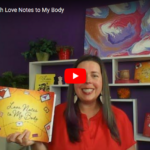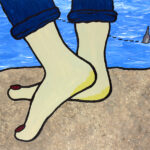I’ll be sharing essays; love notes to our bodies; wise women to follow; media to watch, listen to, or read; and invitations to join me in learning how to accept, respect, and love our bodies.
Read MoreI’m gonna do a read aloud from Love Notes to My Body. This is the book that I wrote on my own journey to make peace with my body, to learn to just love myself a little, and eventually a lot. Love Notes to My Body was written by me, of course, and illustrated by Mica Gadhia, who has her own amazing memoir called Open In the Front, which I highly recommend you also check out for some self-love inspiration.
Read MoreYour body is no one’s business but your own. But there’s a good chance other people haven’t received this message. Prepare yourself with how you want to respond when somebody brings up a topic that you don’t want to talk about.
Read MoreI have learned that when we show up as our most vulnerable selves, it will make someone else afraid. They will say that they are afraid for us, and this is especially true if they love us. But they are also afraid for themselves.
Read MoreRelease the guilt you may feel when you hear that you can’t love others before you love yourself.
Read MoreWhen I began to rebel against the narratives about my body I’d swallowed wholesale, I used curiosity as a lighthouse beacon. I tapped into the little girl inside me who could ask fifty-seven questions in two minutes without taking a breath. And I let myself believe that there had been a time when I didn’t hate my body.
Read More






